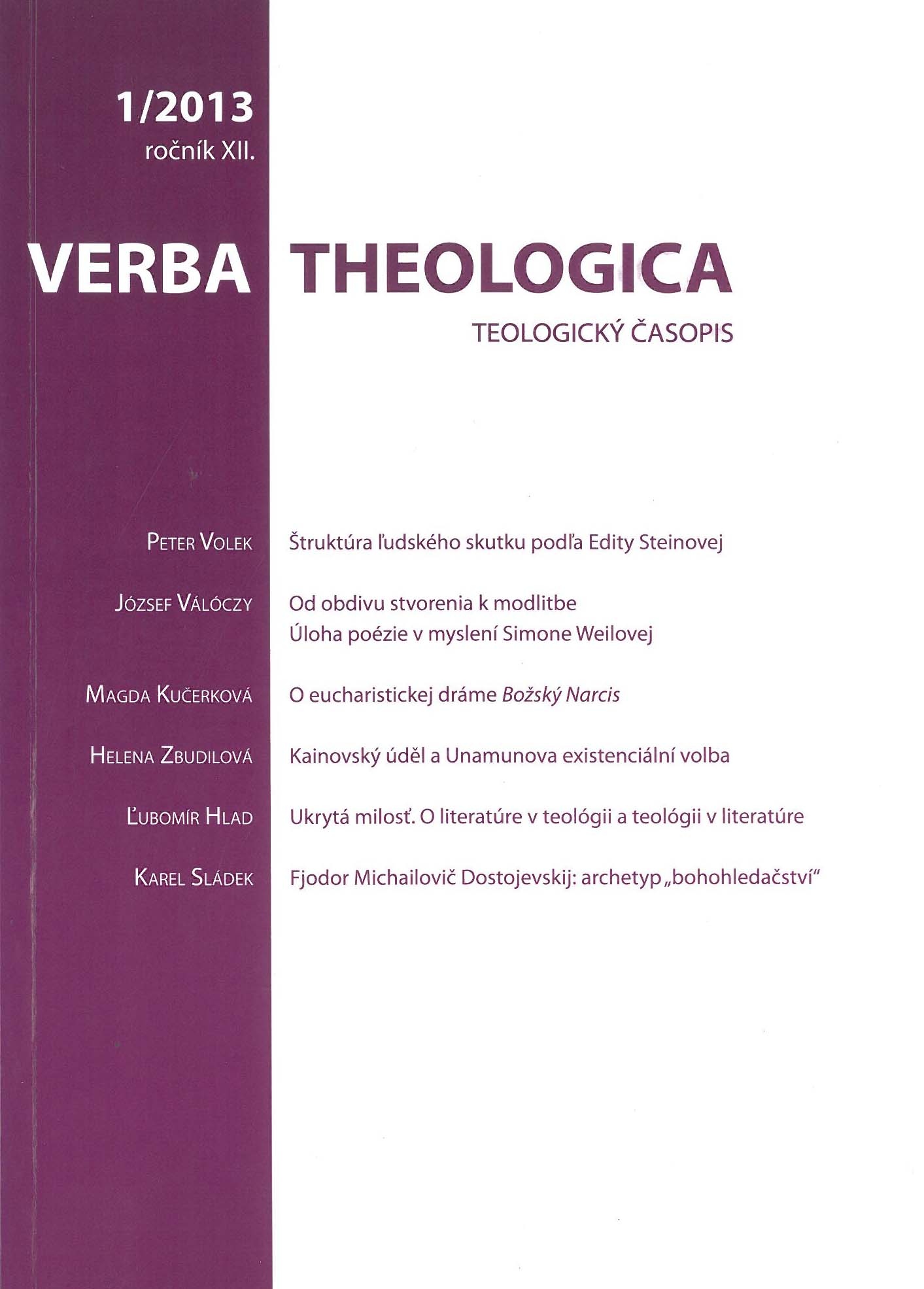Kainovský úděl a Unamunova existenciální volba
The Fate of Cain and Unamon’s Existential Choice
Author(s): Helena ZbudilováSubject(s): Christian Theology and Religion, Theology and Religion
Published by: VERBUM - vydavateľstvo Katolíckej univerzity v Ružomberku
Keywords: spanish existencialism; conception of christianity; modern Cain; Unamuno; Kierkegaard; Buber;
Summary/Abstract: The study deals with the analysis of the novel Ábel Sánchez by Miguel de Unamuno from the point of view of existentialism. Unamuno is considered to be a predecessor of European literary and philosophical existentialism thanks to his conception of Christianity, tragic sense of conflicts between faith and reason and phenomenon of human anxiety. The study concentrates on revealing existentialist phenomena in the novel through the protagonist´s confession. The archetypal character of modern Cain is reflected as an individual with his destiny of Cain and his existential option. Kierkegaard´s philosophical and religious views are used to reveal motives regarding existentialist ethics: the motive of subjective reflection and the motive of absolute option of I (self). The study shows to what extent the protagonist´s freedom to „design himself“ is limited by his predestination. With the help of Kierkegaard´s terminology the protagonist seems to be identified as a representative of authentic despair of defiance, an ethical attitude. Unamuno´s variation on Cain´s theme tends to relativixe both Cainism and blame. Unamuno´s characters are confronted with their counterparts from the Bible and Unamuno´s interpretation of „the daemon at the door“ with the conception of M. Buber, existentialist. Unamuno´s conception of the authentic existence as a personal one is confronted with the need of transcendence.
Journal: Verba Theologica
- Issue Year: XII/2013
- Issue No: 1
- Page Range: 47-58
- Page Count: 12
- Language: Czech

